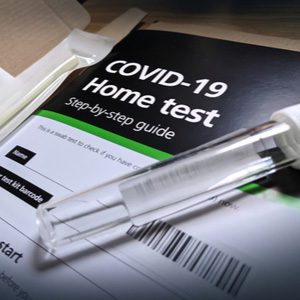
Severe acute respiratory syndrome coronavirus 2 (SARS‑CoV‑2) is the formal name of the coronavirus responsible for the ongoing COVID-19 pandemic. In the United States, since the original outbreak we have so far experienced two variants, Delta and Omicron. Public health experts believe that, like influenza, COVID will eventually become endemic – never completely disappearing, but due to vaccination and herd immunity, gradually becoming less severe and less likely to cause hospitalization and death.
Given the expectation that COVID will be with us indefinitely in some form, let’s review protective measures, testing procedures, and how your FSA/HSA can help.
Reducing the Spread
The Centers for Disease Control (CDC) recommends the following to reduce your chances of either getting or spreading the coronavirus:
- Get vaccinated. Authorized vaccines can help protect you from COVID-19. Once fully vaccinated, you may be able to start doing some things that you had stopped doing because of the pandemic.
- Wash your hands often. Wash for at least 20 seconds with soap and water (including between your fingers) or use hand sanitizer.
- Wear a mask. Everyone 2 years or older who is not fully vaccinated should wear a well-fitting mask in indoor public places. In general, you do not need to wear a mask in outdoor settings. (Wearing a mask is currently required in the U.S. on planes, buses, trains, and other forms of public transportation and while indoors at transportation hubs such as airports and train stations.)
- Stay 6 feet away from others. Try to stay at least 6 feet (about 2 arm lengths) from other people, especially if you are at higher risk of getting extremely sick.
- Avoid crowds and poorly ventilated spaces. Being in crowded places like restaurants, bars, fitness centers, or movie theaters puts you at higher risk for COVID-19. As much as possible, avoid indoor spaces that do not offer fresh air from the outdoors.
- Get tested. If you have been exposed to COVID or are having symptoms of infection, get tested so you don’t unknowingly spread the virus to others.
Coronavirus Testing
There are two types of COVID-19 tests: viral tests, which use samples from your nose or mouth to detect a current infection, and antibody tests, which use a blood sample to determine if you’ve had the infection in the past.
Not surprisingly, viral tests are the most common and come in two forms. One test delivers results in about 15 minutes, while the other can take a couple of days.
- Antigen (rapid) test – The antigen test, or “rapid test,” looks for a particular protein and does not need complex equipment. Antigen tests are the most popular for at-home use and can be purchased from pharmacies, doctor’s offices, and online retailers. The accuracy of these tests varies based on where the infection is in its viral life cycle. Because of that, antigen tests are prone to false negatives. Persons who believe they have been exposed or are having symptoms may want to take this test a few days in a row if their first one comes out negative, to make sure it was not a false result.
- Molecular (PCR) test – The molecular test, or “PCR test,” looks for the virus RNA, or genetic material. This test requires complex equipment, so these are typically done in healthcare offices. In exchange for the extra effort, however, PCR tests are more accurate and less prone to false results.
FSA/HSA Reimbursement
In March 2021, the IRS announced that personal protective equipment (PPE) used to prevent the spread of COVID-19 is a tax-deductible healthcare expense and eligible for purchase or reimbursement by FSA and HSA accounts. PPE includes face masks, hand sanitizer, and sanitizing wipes, among other supplies.
In September 2021, the IRS confirmed that at-home testing for COVID-19 is also an eligible expense for purchase or reimbursement with FSA and HSA accounts.
According to Harvard Health, a publication of Harvard Medical School, most people who become ill with COVID-19 in the future will be able to recover at home. In that case, the prescriptions and over-the-counter (OTC) medications used are eligible for FSA and HSA purchase or reimbursement the same as if they were purchased to treat other common conditions such as the flu.
During the winter months, it’s always good to have a stock of cold and flu products on hand. As we endure another winter season with COVID in pandemic status, the need to keep personal protective equipment (PPE) and at-home COVID test kits on hand is important as well. Check online and local brick-and-mortar retailers for all of these products and use your FSA or HSA funds to pay for them.